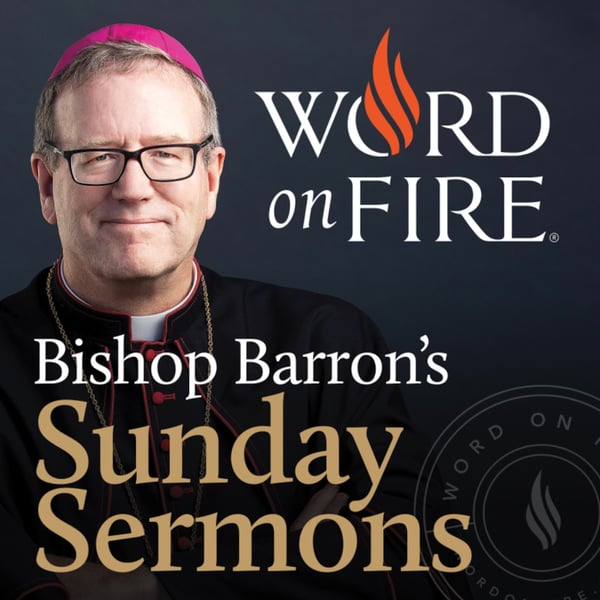The Impossibly Good News of Easter
Bishop Barron’s Sunday Sermons - Catholic Preaching and Homilies
Bishop Robert Barron
4.8 • 4.6K Ratings
🗓️ 4 April 2010
⏱️ 15 minutes
🧾️ Download transcript
Summary
Transcript
Click on a timestamp to play from that location
| 0:00.0 | This is Cardinal Francis George. I invite you to join me for the next two minutes to reflect |
| 0:09.0 | with Father Robert Barron on the Word of God, which is the Word on Fire. Word on Fire Catholic |
| 0:14.2 | Ministries is a non-profit ministry at the forefront of Catholic evangelization, using |
| 0:18.9 | new media to spread the faith and every continent. Father Barron challenges us to open our hearts |
| 0:23.9 | to the Word on Fire, which is God's Word of Love for each of us. If our hearts are open, |
| 0:29.5 | the Lord can change and transform us so that we might speak with love about the one who |
| 0:34.6 | is love. The global benefactors of Word on Fire with the support of the Archdiocese of |
| 0:39.4 | Chicago now present Word on Fire. Peace be with you and happy Easter to all. Friends, |
| 0:49.9 | the Easter Proclamation is the strangest message ever delivered. Jesus Christ is risen from |
| 0:59.2 | the dead. That's the heart and the soul of our faith. Everything else in Christian life centers |
| 1:05.5 | around it. What I'd like to do today is to defamiliarize it a bit. For I think we've been hearing |
| 1:14.3 | this message so long, we've forgotten just how strange and how unnerving it is. Like all human |
| 1:23.2 | beings of all ages, ancient Israelites wondered what happens to us after we die. They pose this |
| 1:31.0 | question, of course, in the context of their faith in Yahweh, the Lord. Many Jews of biblical |
| 1:37.6 | times believed that nothing happens after we die, that we just go back to the earth and we |
| 1:43.6 | fade away, and we can indeed see that belief reflected in many Old Testament texts. The |
| 1:50.5 | Psalmist begs God to preserve his life in this world. Why? Because dust cannot praise you. You see |
| 1:57.8 | his point is once I die, go back to dust. I'm not going to praise you. So Lord, keep me alive here |
| 2:02.6 | as long as you can. Many Jews today hold to this ancient belief. Other biblical Jews held that |
| 2:12.0 | after death a person went down to a shadowy underworld called Shayol in Hebrew. Shayol was a bit |
| 2:19.9 | like the underworld spoken of in Greek and Roman mythology, a place of sadness, boredom, gloominess. |
| 2:27.0 | Nobody longed to go to Shayol. Nobody hoped to find fulfillment in it. It was kind of a muted, |
... |
Please login to see the full transcript.
Disclaimer: The podcast and artwork embedded on this page are from Bishop Robert Barron, and are the property of its owner and not affiliated with or endorsed by Tapesearch.
Generated transcripts are the property of Bishop Robert Barron and are distributed freely under the Fair Use doctrine. Transcripts generated by Tapesearch are not guaranteed to be accurate.
Copyright © Tapesearch 2025.

